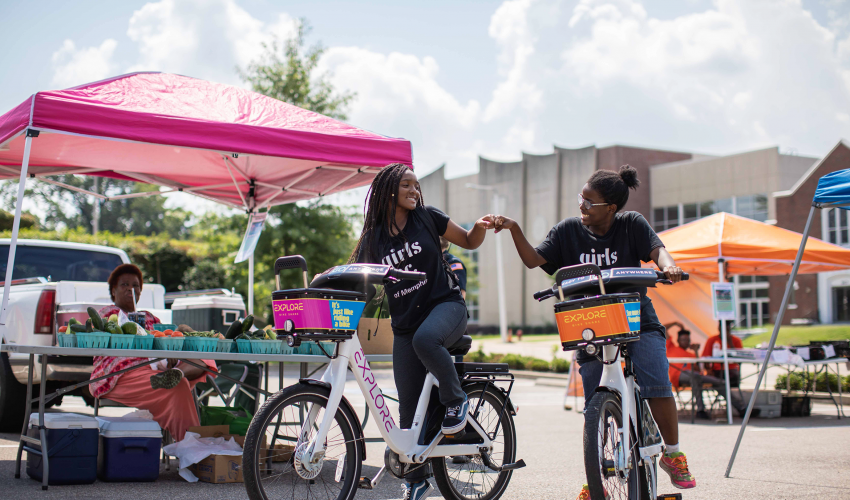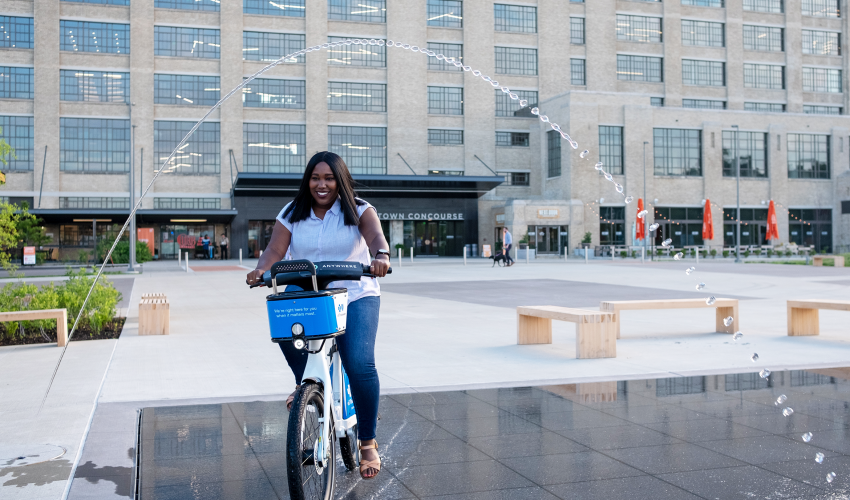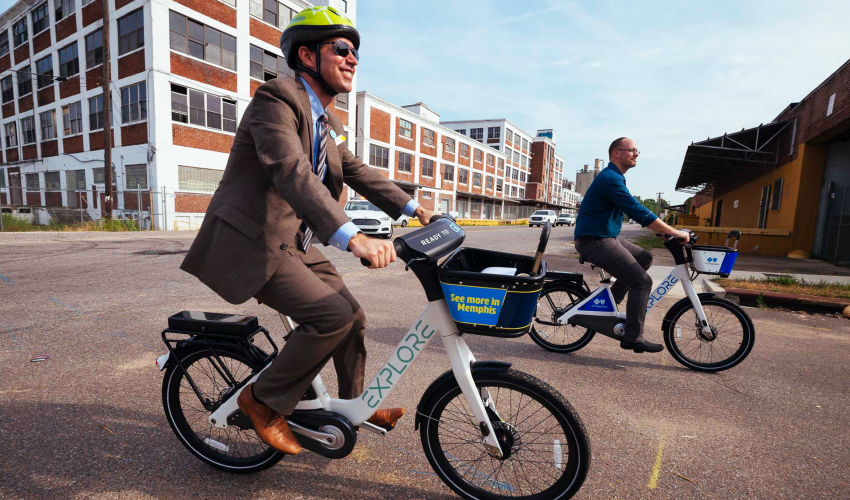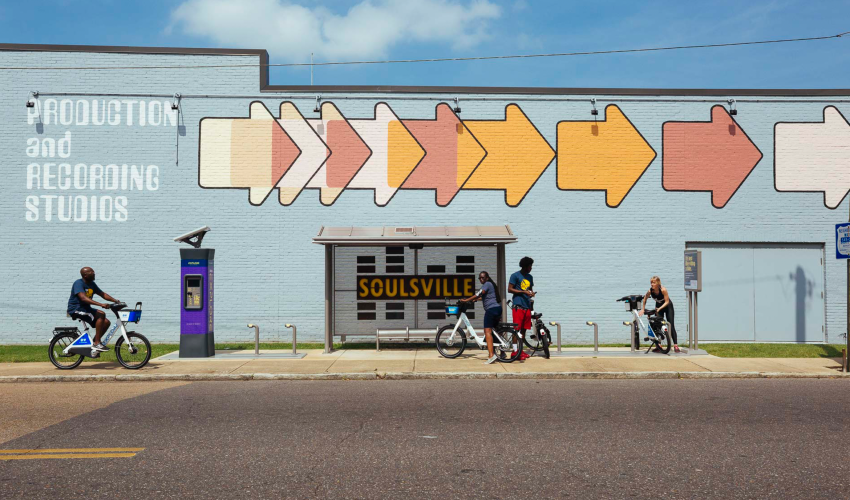In 2010, Bicycling magazine ranked Memphis as one of the least bike-friendly cities in the country. The city decided to change that, adding bike lanes any time a road needed repaving and installing greenways that encouraged cycling.
The transformation effort worked. In just two short years, Bicycling magazine named Memphis the most improved city for biking.
“Now, Memphis is one of the most bike-friendly cities in the country,” says Trey Moore, executive director of the recently launched Explore Bike Share program. “But there is still an opportunity for greater adoption and to get people comfortable in using bikes for transportation or recreation.”
The first step: get bikes to people.
Explore Bike Share installed stations throughout the city, stocked with bicycles available to rent as needed. People can choose to take a bike out for a short ride or pay for a day, a month or even a year’s membership to access the bicycles.
Thousands of residents and visitors responded immediately to the convenience — and the program introduced them to some surprising benefits.
Navigating a dense downtown easily
A lot of business gets done in downtown Memphis, with people traveling from one office to another. That usually means getting in the car, navigating traffic and pedestrians and finding a place to park, which is very difficult in some downtown areas and typically costs money. It can be a hassle, but walking takes too long.
“We want people to understand that they can use one of our bicycles instead,” says Moore. “And it’s a way to reduce traffic and parking problems.”

Getting to know their city better
The bike share program allows users to pick up a bicycle in one area and drop it off at any station.
Memphis is a city filled with diverse and historic neighborhoods, and each of the 60 Explore Bike Share stations points out areas of interest to its riders and suggests routes to take.

Yolanda Manning signed up to be an Explore Bike Share member soon after it launched, looking at it as a way to be physically active. She soon realized that she was getting more out of it than just exercise.
“Being on a bike instead of in a car means that I see so much more,” she says. “In the car you have tunnel vision, focusing on the road ahead of you. But now I see Memphis in a different light. I notice the neighborhood around me and it’s helped me discover more about the community.”
Explore Bike Share: The first 3 months
Bike trips: 15,000
Bike share users: 6,500
Total miles travelled: 55,000
Estimated calories burned: 2,200,800

Improving health
The practical function of a bicycle is getting from point A to point B. The fun part of riding a bicycle is moving along at a nice clip and enjoying the scenery.
Often riders don’t consider their jaunts on a bike to be exercise, but they are adding physical activity to their day and burning calories. Explore Bike Share tracks the mileage and calories burned on its bikes, and in its first 3 months, riders burned 2.2 million calories.
“Health is one of our top priorities,” says Moore. “Memphis is not as healthy as we should be. We have a high rate of obesity and diabetes, so anything we can do to encourage people to use Explore Bike Share for health and recreation is a positive.”
“At some of our most popular stations, riders have the opportunity to follow a round trip circuit plan that covers several miles. Explore Bike Share members can track their mileage and calories on their account, so those routes can be part of an incentive for more activity.”

The wheels keep turning
Explore Bike Share works with other organizations to educate people about riding safely and confidently. It has plans to set up 30 more stations in Memphis and hopes to expand further into lower income areas where residents have a real need for alternative transportation.
Since its launch, Explore Bike Share has been analyzing how people are using its bicycles and building on that information to meet rider needs. As the program grows and encourages more people to try biking, they hope the change in behavior will have a ripple effect.
“Our community has a lot of challenges related to poverty and health,” says Moore.
“Our mission is to have an impact in those areas, and to be part of the solution to improve the quality of life for all Memphians.”

